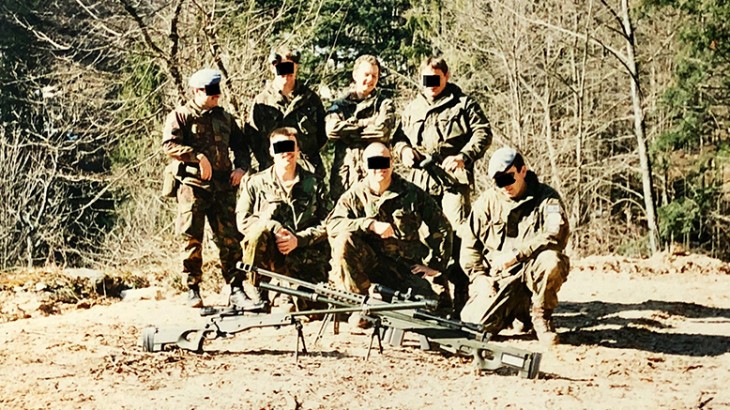Proud to serve

This year marks the 20th anniversary of the lifting of the ban on lesbian, gay, bisexual and transgender people serving in the UK’s armed forces.
Under the policy, when a gay member of the armed forces had their sexuality discovered, they were honourably discharged. In some cases, they were also stripped of their medals.
Like the rest of society, our armed forces have come a long way in the last two decades. Since the ban was lifted in 2000, the British armed forces have become one of the UKs most inclusive employers, reaching the Top 100 employers on Stonewall’s Workplace Equality Index and openly recruiting at the many Pride events held around the country every year.
Back in the day, however, the rampant homophobia that existed both within the forces and their supporters in Parliament had devastating effects on countless servicemen and women who were hounded out because they feared their sexuality would be revealed.
Many were thrown out for consensual sexual activity, ‘service offences’ or offences that are no longer crimes today. As such, their lives were changed or destroyed entirely by their private lives being revealed to their colleagues, friends and families.
In January, the MOD finally apologised for the archaic policy 20 years after it was scrapped. The ban was lifted by a Labour government in January 2000 after a number of LGBT+ people took a legal case against the ban with the help of charity, Stonewall.
Conservative MP Johnny Mercer, who is also a veteran, delivered an official apology to LGBT+ soldiers sacked over their sexuality, for the anti-gay policy in a speech at the Houses of Parliament.
‘It was unacceptable then and it is unacceptable now,’ he said. ‘As the minister for defence, people and veterans, I wanted to personally apologise to you today for those experiences.
‘If I am honest, it is hard to conceive – as a more contemporary veteran of our armed forces – the environment too many of you experienced when you were serving.’
Peter de Norville (pictured) is our head of diversity and inclusion. He is pansexual and was also a bomb disposal and high-risk search operator in the Army before the rule changes came in.
‘I always found it very hard to keep such a big part of myself a secret, particularly from people who were so close to me,’ he said. ‘I could literally feel a hand on my shoulder in the dark and instinctively know who it belonged to. I could look at eight sets of identical kit and know whose was whose. Every one of us knew exactly how the other would react in any given situation.
‘These were people who would share the most intense situations you could possibly imagine and who would tell you everything they had ever said or done, no matter how embarrassing or personal it might be. I trusted every one of them with my life on a regular basis, but I couldn’t trust a single one of them with my secret, as one word from one person would have meant losing a job that I loved.’
Supporting LGBT+ colleagues
Making our business a place where LGBT+ colleagues can achieve their potential remains a priority.
Our LGBT+ & Friends steering group was established in 2015 with the goal of creating an accessible network for LGBT+ colleagues and supporters to come together and share their experiences.
If you’d like to join the LGBT+ & Friends closed Facebook group – the place to be for all things LGBT+ in Royal Mail – email lgbt.and.friends@royalmail.com with your pay number and the email address you use to sign into Facebook.



